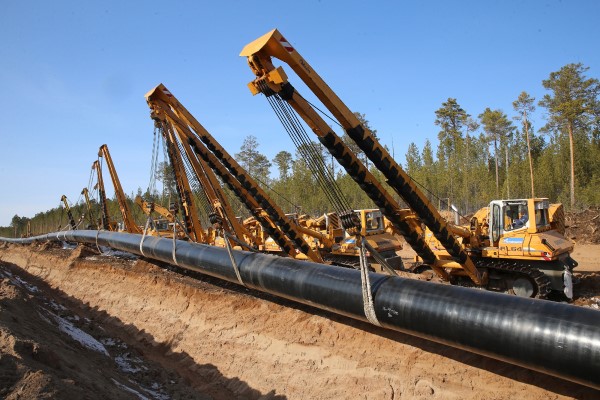Serbia Risks Oil Import Cut Off as U.S. Sanctions Deadline Nears
(Reuters) — Serbia risks losing access to vital oil imports from Friday as discussions to prevent the imposition of U.S. sanctions on the country's sole oil refinery have failed, President Aleksandar Vucic said in a published interview.
A waiver on sanctions is due to expire at midnight and, if not extended, the NIS refinery, majority-owned by Russia's Gazprom Neft and Gazprom, could face crude supply cuts.
NIS operates Serbia's only oil refinery, which has annual capacity of 4.8 million tons and covers most of the Balkan country's energy needs.
Vucic was quoted by Britain's Financial Times newspaper on Thursday as saying he did not expect a last-minute deal.
"We've been talking to the Americans, to the Russians, to everybody" about finding a solution, Vucic told the FT in Belgrade. "We didn't see any changes in the American attitude."
He was expected to address the Serbian public about the situation later on Thursday.
The U.S. Treasury's Office of Foreign Assets Control (OFAC) initially placed sanctions on Russia's oil sector on January 10 and gave Gazprom Neft 45 days to exit ownership of NIS.
After the first request by NIS for a sanctions waiver, the OFAC delayed sanctions for 30 days on February 27 to allow NIS to find a solution with the Russian companies. On February 26, Gazprom Neft transferred stakes of around 5.15% in NIS to Gazprom in an attempt to ward off sanctions.
The changes mean Gazprom Neft, now subject to more severe Western sanctions due to its heavier focus on oil income, no longer has an absolute majority in NIS. They echoed a move in 2022 that allowed Gazprom Neftat the time to avoid European Union sanctions imposed on Russia over its invasion of Ukraine.
Gazprom Neft now owns 44.85% of NIS, while Gazprom - whose income comes mainly from gas - has 11.3%. The Serbian government holds a further 29.87% of stakes, with small shareholders accounting for the remainder.
NIS imports about 80% of its needs through Croatia's pipeline operator Janaf, with the remainder covered by its own crude oil output in Serbia. In 2024 the two companies agreed on the transport of 10 million tons of crude oil by December 2026.
Earlier this month, Economy Minister Ante Susnjar of Croatia, an EU member state, said Janaf was considering the purchase of all of Russia's stake in NIS.
Related News
Related News

- Enbridge Plans 86-Mile Pipeline Expansion, Bringing 850 Workers to Northern B.C.
- Intensity, Rainbow Energy to Build 344-Mile Gas Pipeline Across North Dakota
- U.S. Moves to Block Enterprise Products’ Exports to China Over Security Risk
- Strike Pioneers First-of-Its-Kind Pipe-in-Pipe Installation on Gulf Coast with Enbridge
- 208-Mile Mississippi-to-Alabama Gas Pipeline Moves Into FERC Review
- U.S. Pipeline Expansion to Add 99 Bcf/d, Mostly for LNG Export, Report Finds
- A Systematic Approach To Ensuring Pipeline Integrity
- 275-Mile Texas-to-Oklahoma Gas Pipeline Enters Open Season
- LNG Canada Start-Up Fails to Lift Gas Prices Amid Supply Glut
- Strike Pioneers First-of-Its-Kind Pipe-in-Pipe Installation on Gulf Coast with Enbridge





Comments